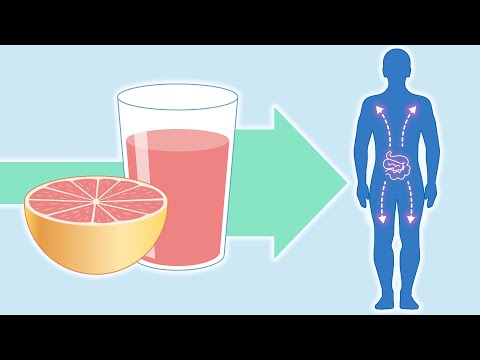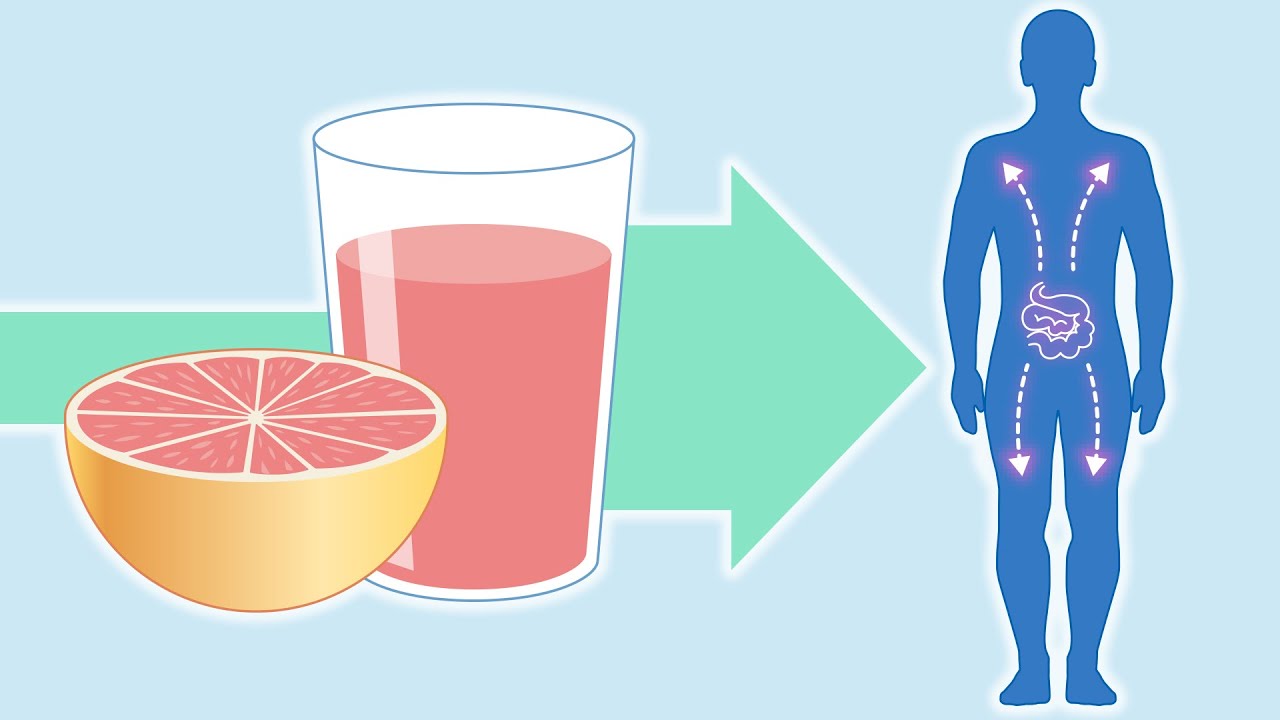Discover the Surprising Interactions Between Grapefruit and Medications Unveil the intriguing world of drug interactions with grapefruit. Delve into the surprising effects that this seemingly harmless fruit can have on medications. Brace yourself for a journey through the complex chemical reactions that occur within our bodies when we consume grapefruit alongside certain drugs. You’ll be captivated by the intricate dance between grapefruit compounds and medications, which can either enhance or diminish the effects of the drugs we rely on. Prepare to be amazed as you unravel the mysteries behind the interaction of grapefruit with a wide range of medications, from common pain relievers to life-saving cholesterol-lowering drugs. Gain valuable insights into the potential risks and benefits of combining grapefruit with specific medications, and discover how this fruit can unexpectedly alter drug absorption, metabolism, and potency. This eye-opening exploration will leave you with a newfound appreciation for the power of grapefruit-drug interactions and a desire to delve deeper into the fascinating world of pharmaceutical science.

Interactions of Grapefruit with Medications
| Medication | Drug Class | Interaction with Grapefruit |
|---|---|---|
| Atorvastatin (Lipitor) | Statins | Grapefruit can increase blood levels of atorvastatin, potentially leading to an increased risk of side effects such as muscle pain and liver damage. It is advised to avoid grapefruit consumption while taking this medication. |
| Warfarin (Coumadin) | Anticoagulants | Grapefruit may inhibit the breakdown of warfarin, leading to increased blood thinning effects and potentially causing bleeding complications. Patients on warfarin should avoid grapefruit or consult with their healthcare provider for necessary dose adjustments. |
| Benzodiazepines (Alprazolam, Diazepam) | Anti-anxiety Medications | Grapefruit can enhance the sedative effects of benzodiazepines, leading to increased drowsiness and impaired coordination. Patients taking these medications should avoid grapefruit or discuss potential risks with their doctor. |
| Felodipine (Plendil) | Calcium Channel Blockers | Grapefruit inhibits the metabolism of felodipine, resulting in increased blood levels of the medication. This can lead to enhanced blood pressure-lowering effects and an increased risk of side effects such as dizziness and flushing. Grapefruit consumption should be avoided while taking felodipine. |
| Cyclosporine (Neoral, Sandimmune) | Immunosuppressants | Grapefruit can significantly increase blood levels of cyclosporine, potentially leading to kidney damage and other severe side effects. It is crucial to avoid grapefruit consumption while on cyclosporine therapy and consult with a healthcare professional for suitable alternatives. |
“Unveiling the Bitter Truth: Grapefruit Juice’s Incompatible Dance with Certain Medications”
The Grapefruit Effect: Interactions with Medications
Grapefruit is a delicious and nutritious fruit that is packed with vitamins and antioxidants. However, it is important to be aware of its potential interactions with certain medications. Grapefruit juice contains compounds that can interfere with the enzymes in your digestive system, affecting the way drugs are metabolized. This can lead to unpredictable and potentially harmful effects. Below, we explore some of the most commonly used medications that interact with grapefruit.
1. Statins
Statins are a class of drugs commonly prescribed to lower cholesterol levels. They work by inhibiting an enzyme in the liver that is responsible for cholesterol production. However, consuming grapefruit or grapefruit juice while taking statins can increase the levels of the drug in your bloodstream, leading to a higher risk of side effects such as muscle pain and liver damage. It is important to talk to your healthcare provider about grapefruit consumption if you are taking statins.
2. Calcium Channel Blockers
Calcium channel blockers are medications used to treat high blood pressure and certain heart conditions. They work by relaxing and widening the blood vessels, allowing for better blood flow. Grapefruit can inhibit the metabolism of these drugs, leading to higher levels in the bloodstream. This can result in lower blood pressure, dizziness, and an increased risk of side effects. If you are taking calcium channel blockers, it is advisable to avoid grapefruit and grapefruit juice.
3. Anti-Anxiety Medications
Anti-anxiety medications, such as benzodiazepines, are commonly prescribed to treat anxiety disorders and insomnia. Grapefruit can interfere with the metabolism of these drugs, leading to increased sedation and drowsiness. This can impair your ability to function and increase the risk of accidents. It is essential to discuss grapefruit consumption with your healthcare provider if you are taking anti-anxiety medications.
4. Immunosuppressants
Immunosuppressants are drugs used to prevent the body from rejecting transplanted organs and to treat certain autoimmune diseases. Grapefruit can inhibit the metabolism of these medications, leading to an increased risk of toxicity. This can compromise the effectiveness of the drug and potentially harm your immune system. If you are on immunosuppressants, it is crucial to avoid grapefruit and grapefruit juice.
5. Antidepressants
Antidepressant medications are commonly prescribed to treat depression and other mental health disorders. Grapefruit can interfere with the metabolism of these drugs, leading to increased levels in the bloodstream. This can result in a higher risk of side effects, such as serotonin syndrome, which can be life-threatening. It is vital to consult with your healthcare provider about grapefruit consumption if you are taking antidepressants.
In conclusion, although grapefruit is a nutritious fruit, it can have significant interactions with certain medications. It is crucial to be aware of these interactions and to discuss them with your healthcare provider. If you are taking any of the mentioned medications or any other prescription drugs, it is best to err on the side of caution and avoid grapefruit and grapefruit juice altogether. Your healthcare provider can provide you with detailed information and guidance on how to safely consume grapefruit while on medication.

